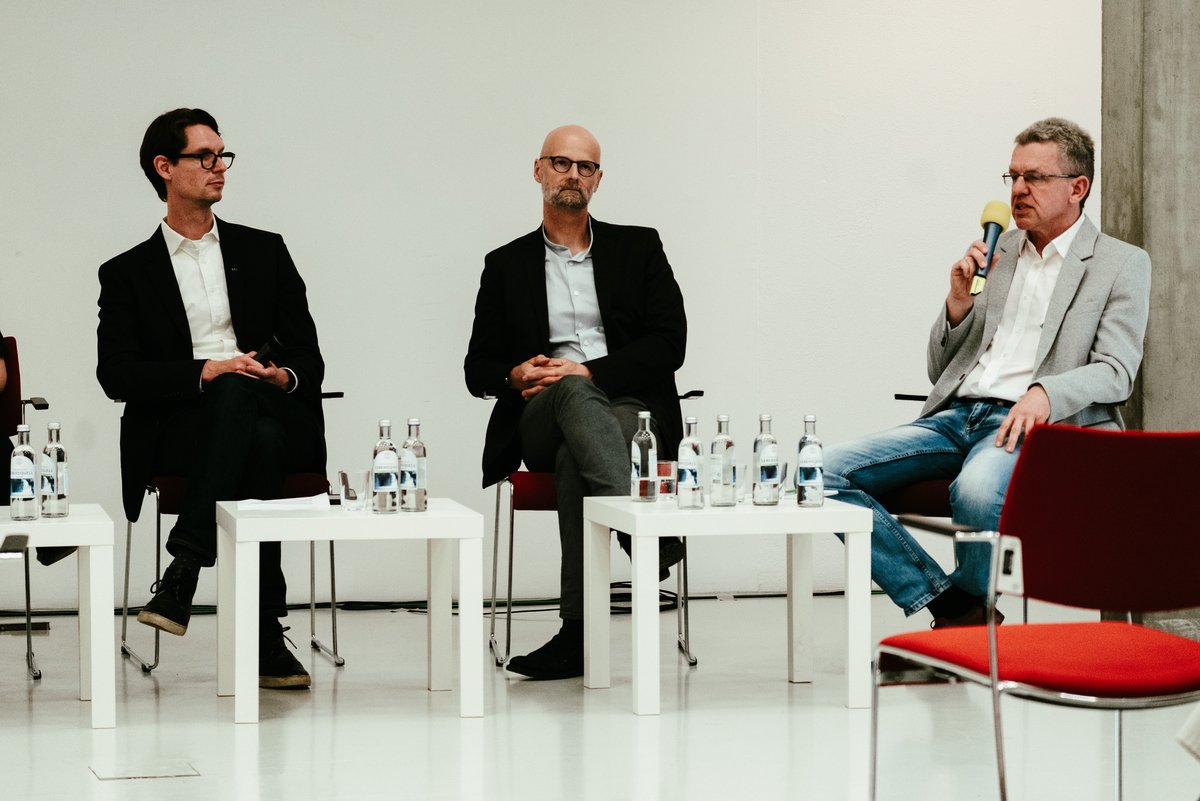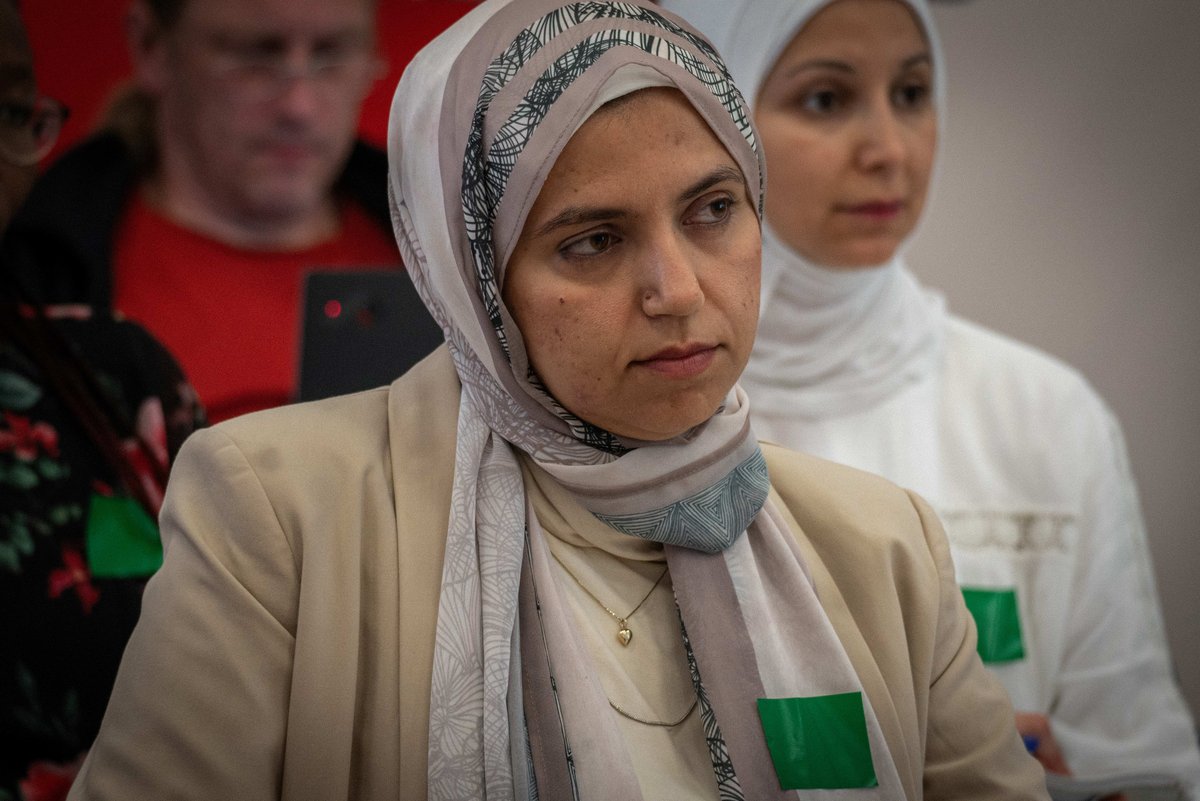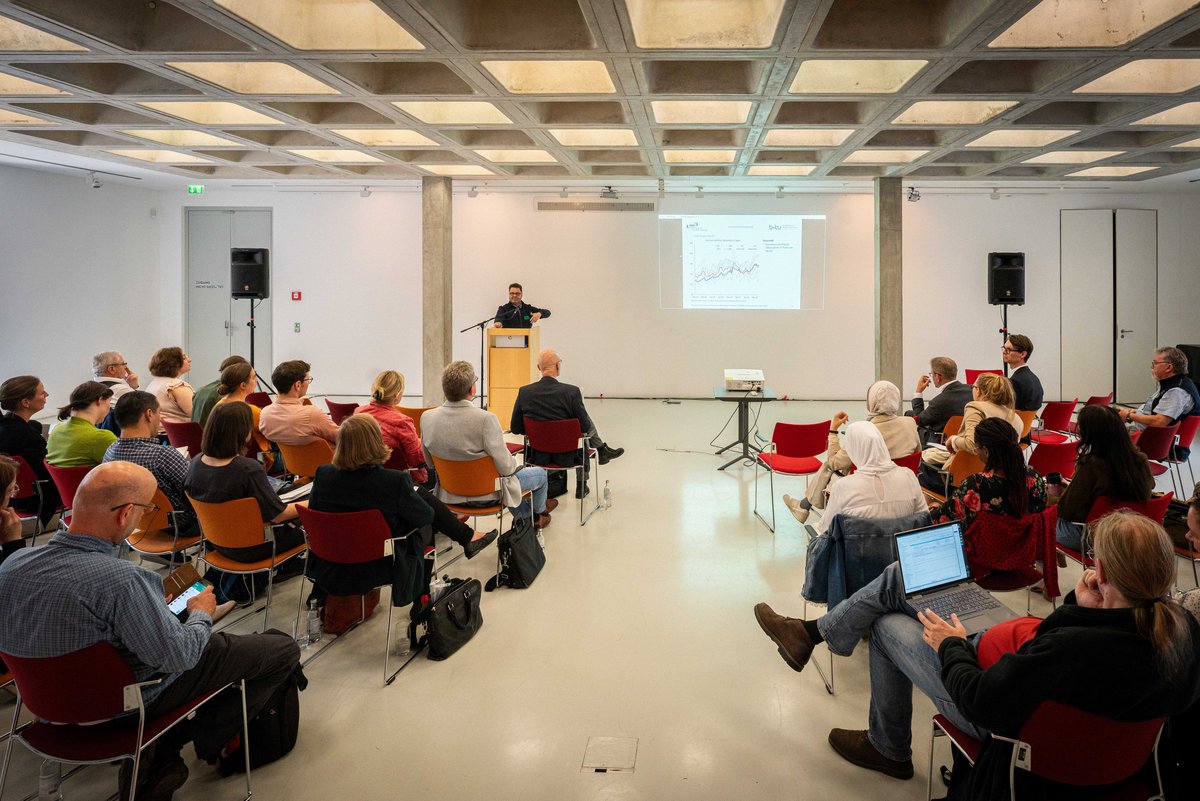Multilingualism and Interculturalism for Securing Skilled Workers in the Region of Structural Change
Among other things, they addressed the question of how to optimize the transition of international students into the regional labor market and, above all, how to break down language barriers. After all, more than 2,500 international students are currently studying at BTU, around 60 % of them in English-language study programmes.
The event was organized by the Vice-President for Academic Affairs, Prof. Peer Schmidt, and the Central Institution for Languages as part of the joint project Profis D - Fach.Deutsch.Digital für Studium und Beruf with the Gesellschaft für akademische Studienvorbereitung und Testentwicklung e. V. (g.a.s.t.), which is funded by the Foundation for Innovation in University Teaching 2021-2024.
In his welcoming speech, Prof. Peer Schmidt emphasized the importance of a more intensive dialog between the university and the business community. Only if the needs, challenges and risks are transparent, the university can contribute in the design, in particular of its international study programmes, to provide qualified training for the specialists of tomorrow. The development of measures to exploit the potential of international students must also be understood as a joint task of science, university administration, central institutions such as the Language Center, the Career Center, the Center for Continuing Education, and companies.
In the moderation of Dr. Johannes Staemmler, Head of the Department of Structural Change at BTU Cottbus-Senftenberg, the perspectives of the various stakeholder groups were challenged above all:
Dr. Gunther Markwardt pursued the question " Turn of the times on the Lusatian labor market: from problem child to worry child? And showed the developments to be expected with regard to the need for skilled workers for the regional labor market. He pointed out the great opportunity to use the potential of international graduates from the BTU and other universities in Lusatia for the regional labor market.
Heiko Witte, Manager of chesco GmbH since May 2023, explained that the settlement of large international companies and national research institutions, e.g. in connection with the Lausitz Science Park, can have positive effects on the employment structure. Interculturalism and language acquisition are to be developed as important key competencies already in (pre-)school education. Likewise, cooperation with the neighboring countries of Poland and the Czech Republic should be further expanded.
Peter Wendt, Head of Human Resources at ArcelorMittal Eisenhüttenstadt, presented concrete examples of personnel development from the company's own practice, including measures such as the trainee program. He emphasized the importance of German language skills for successful communication with customers, with executing Staff Members or for ensuring occupational safety on the one hand and an introduction to the respective work and corporate culture on the other.
Mareike Kunze, head of the BTU's International Relation Office, provided information on the key points of the position paper of the German Academic Exchange Service (DAAD), which was published in March 2023. International students as tomorrow's skilled workers. According to this, universities are "migration magnets and engines for the immigration of skilled workers".
Geraldine Wolf from the BTU's Career Center presented survey results in connection with recruiting events such as the campus-X-change trade fair or the Matching Day, which made it clear that there is a "classic mismatch" when regional employers mostly require German language skills at the level of the Common European Framework of Reference (CEFR) B2, C1 or even C2 - while the majority of graduates from English-language study programmes only demonstrate skills at A2 level.
In summary, Katja Brachmann, Head of the Central Institution for Languages at the BTU, explained that linguistic and cultural barriers to the internationalization of the regional labor market can only be removed if language courses are targeted in terms of content and methodology towards social integration at the university location, language support in academic studies, career entry or mobility abroad, and are also anchored in the academic teaching portfolio. Multilingualism and Interculturalism of young professionals should therefore be systematically funded. She described that it is unrealistic to expect students to acquire German skills beyond the basic level within the framework of their studies if language training is not anchored in the curriculum.
In the question rounds as well as the subsequent panel discussion, it became clear that the stakeholders present from companies, universities, and local and regional institutions consider a holistic approach to addressing the title question to be indispensable, which, in addition to a systematic, i.e. curricularly anchored promotion of competencies in several languages for international as well as national students in the study programmes and the promotion of English and German language skills in companies, should also include raising awareness for successful communication between people of different origins. Only by means of efficient measures can the linguistic-cultural challenges of structural change be overcome. In order to develop these together, the dialog between all actors will be pursued further.
Contact



